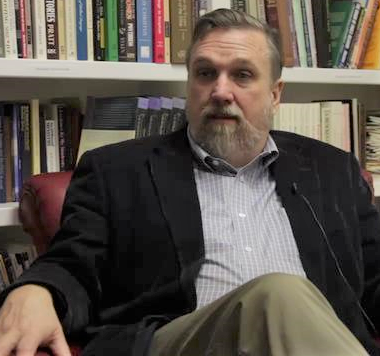In part one we explored the Greek term paideia as a key to understanding how humans and nations develop. In this brief part two, we need to consider another dimension of this profound term.
The Paideia Principle affirms that discipling both children and nations is an act of enculturation. It is discipling at the level of culture. Pastor Douglas Wilson, a theologian, teacher and Senior Fellow at the Trinity Forum, has written of paideia:
My understanding of paideia in this sense (the sense I believe Paul is using) would be summed up with the word enculturation. But enculturation presupposes a culture. The idea refers to the insinuation of Christian kids into a Christian culture, the incorporation of our children into a mere Christendom.
culture. The idea refers to the insinuation of Christian kids into a Christian culture, the incorporation of our children into a mere Christendom.
Paideia calls the future into existence. The Apostle Paul writes, “as it is written, ‘I have made you the father of many nations’—in the presence of the God in whom he believed, who gives life to the dead and calls into existence the things that do not exist,” Romans 4:17.
Likewise the prophet Isaiah says, “Remember the former things of old; for I am God, and there is no other; I am God, and there is none like me, declaring the end from the beginning and from ancient times things not yet done, saying, ‘My counsel shall stand, and I will accomplish all my purpose,” Isaiah 46:9-10.
Things not yet done are rooted in the past!
We are not to live in the present always longing for the past. We are to live in the present in the context of the coming kingdom of God. There are things rooted in the past that are not yet done. We are to live a proleptic life, to live in the reality of the future coming of Christ and His kingdom. God is calling into existence today the things that are coming in the future.
The word proleptic means “to anticipate before.” To live a proleptic life is to live today in the reality of the future. This life may be rooted in the ancient pathways that are fulfilled in the future. And we have the privilege of participating with God to call into existence, through our lives, the things that do not yet exist.
In other words, we are to live as if the future were present. We are to live in the world we now see, according to what we know is true in the unseen world, our lives revealing in the now, the not-yet of the coming of the kingdom of God.
Doug Wilson writes of the importance of grounding the future in the word of God:
Only God can create ex nihilo, but we are commanded to “create” after Him, imitatively. The biblical way this is done is through the word. In and through the Word all things were created. And that is the way things are to be recreated also. That is the way everything is rebuilt. The Word must come first.
God is making a new world
The word of God is descriptive of what is and what has been. It is also prescriptive of what ought to be and will be. Wilson writes: “The authoritative word goes out, and a new world comes to be. The world of the future is taking shape around us, and it is the Word that makes it come to be. The Word brings new life.”
God created the universe out of His imagination by speaking words. He has also given us His Word to explain and frame our lives. He has made us in His image. Part of what that means is that we make words and create culture. We can imagine the coming of the Kingdom of God and create culture that reflects this. We are, to use Doug Wilson’s phrase, “the builder of worlds.”
Near the end of his essay on the Paideia Principle, Wilson asks the question that will be the challenge of the end of this blog: “Why not the paideia of God? Why not intelligent and focused discipline that knows where it is going and why?”
For more on Wilson’s fine essay go here.
- Darrow Miller






